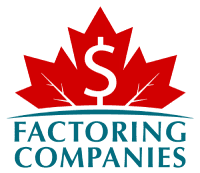Factoring Companies – Understanding Your Options
Factoring can provide an essential infusion of cash into small businesses strapped for operating capital. Factoring is really only the process of leveraging outstanding invoices owed to you by your customers, and it can ensure liquidity even when customers don’t pay their invoices for 30, 60 or even 90 days after delivery of goods or services. Of course, in order to benefit from this, you’ll need to work with factoring companies. There are quite a few options out there, and they’re not all the same.
Navigating the sometimes murky waters of the factoring industry can be a challenge. Let’s discuss a few of the things you’ll need to know about factoring companies, specialties, and the different forms of factoring that you might encounter out there.
How Do Factoring Companies Differ?
Factoring companies can differ from one another in a number of different ways. These include the following:

Those are just some of the ways that factoring companies can differ from one another. Now, let’s delve into those areas and see how they might or might not apply to your particular situation.
Types of Factoring
In general, when you hear the word ‘factoring,’ what’s being discussed is invoice factoring. However, there are other options that might fit better, and there are also other names used for the same processes.
As you can see, there are quite a few different options that fall under the broad heading of “factoring”, and they’re far from being the same thing. You’ll need to tread carefully when choosing between factoring partners, and make an informed decision based not only on accurate information about the company in question, but also about your own needs and cash flow situation.

Factoring Companies and Industry Specialisation
While there are generalist factoring firms out there, you’ll find that quite a few specialise in providing services to a specific industry. For instance, you’ll find transportation factoring companies out there, also called OTR factoring companies, as well as manufacturing and warehousing/logistics factoring companies in Canada.
Why consider working with a specialised firm, rather than a generalist company? There are actually quite a few reasons, and you’ll find that each industry has its own peculiarities. Let’s consider the construction industry as a prime example. If you’re in the construction industry and perusing a list of factoring companies, you’ll definitely want to work with a specialist.
This is because construction contracts are very different from other types of accounts receivable. One prime example of this is the “pay-when-paid” clause. Let’s suppose you’re a subcontractor on a construction job. You have a contract with the general contractor that basically says you’ll be paid when (and if) the general contractor is paid.
Trying to sell that sort of contract to a generalist factoring company isn’t going to work, simply because there are too many variables. For instance:
Another example can be drawn from the transportation industry. Factoring for trucking companies can provide valuable solutions when cash is low and liquidity is needed, and your clients haven’t paid yet, but there’s a great deal of ambiguity in the trucking/logistics industry (as much or more than the construction industry).
This ambiguity grows if you’re involved in the wider logistics industry, including warehousing. What happens if your customer simply chooses to abandon their stock stored in your warehouse and doesn’t pay the bill? A factoring company that specialises in logistics/warehousing would understand this risk and provide specialised solutions that take it into account.
As you can see, there are many instances in which working with a factoring company that specialises in a particular industry is not just a good idea, but absolutely crucial. Other examples could include research and development firms, scientific research companies, and the like. Essentially, any industry that is substantially different from the norm may require specialised knowledge and experience on the part of the factoring firm.
There are additional considerations to be made that a specialise factoring firm might be able to help with, as well. For instance, specialists tend to offer a wider range of services pertinent to your industry than do generalist firms. While this is not true across the board, you’ll find that quite a few factoring companies can provide additional value. For example, a company that specialises in warehouse and distribution/trucking factoring might be able to provide services that include:
Different Options Offered by Factoring Companies
In addition to specialisations, you need to consider other elements before choosing between factoring companies out there. These elements primarily revolve around the company’s policies and practices involving invoices and your clients or customers.
Considerations to Make When Comparing Factoring Companies
Factoring can be a powerful solution if your business is facing a shortfall in cash. It offers the ability to obtain liquidity, without the need to work with a bank (and suffer the lengthy wait times and the very real possibility that you’ll be turned down). Also, factoring is not a loan – it’s an advance on cash already owed to your company. So, you’re actually just selling an existing asset.
With all that being said, you do need to compare your options very carefully. While there are reputable factoring companies that have been around for a long time, there are also less-than-reputable firms that you should avoid. When comparing your options, you’ll want to consider a few things, including the following.
History
How long has the company been established? A lengthy history is a good sign that the company is on the up and up, and provides a valuable service to its customers. While you may consider working with a younger firm, the lack of history can make it more difficult to determine if they’re worth your time.
Factoring Types Offered
As we’ve discussed, there are many different types of factoring out there, and they can be very different. First, define your needs, and then find a company that offers solutions that fit your needs.
Fees and Charges
Factoring does come at a cost. All factoring companies will charge you a fee based on the amount of the invoice being factored. However, some companies tack on other charges – application fees, processing fees and other costs. It’s obviously in your best interests to make sure that the company you’re working with doesn’t add hidden fees to your contract, or you could find yourself overpaying for the service.
Specialisation
This may or may not apply to your business – it really depends on your industry. However, for businesses in quite a few different industries, specialisation is not just “nice to have”, but an absolute must. What’s more, it can be difficult to tell if a company actually focusses in your industry, or has only handled a few transactions in that area. Look for industry-specific knowledge, and ask for a list of other clients the company has served in your industry before you sign on the dotted line.
Get the Help You Need
Finding the right option from the many different factoring companies in Canada can be time consuming and difficult, especially if you have little or no experience here. We can help. We invite you to take advantage of the free consultation with one of our factoring specialists and learn more about which companies are the right fit for your needs.
Frequently Asked Questions About Factoring Companies in Canada
How do factoring companies take on credit risk?
When you use factoring companies, they perform credit checks on your clients, not on your business. The factoring company assumes the credit risk in a non-recourse factoring arrangement. This protects your company if the client defaults, though higher fees may apply.
Can my company use factoring with a low credit score?
Yes, your credit score is not the main factor. Factoring is a financial transaction based on your clients' creditworthiness. This is why factoring is often used by startups and growing businesses that may not qualify for a line of credit.
What type of companies use invoice factoring?
Factoring is used across many sectors to convert unpaid invoices into immediate working capital. It’s particularly effective for businesses with long payment cycles or seasonal cash flow gaps, helping them maintain stability and fund growth without taking on debt.
How is factoring different from debt financing?
Factoring is the sale of a financial asset (your receivables), not a loan. Unlike debt financing, it doesn’t add liabilities to your balance sheet or require monthly repayments.
Is there a way to factor invoices only occasionally?
Yes. Spot factoring lets you sell individual invoices without a long-term contract. While rates may be higher, it gives you the flexibility to access cash only when needed.
How do factoring companies make money?
Factoring companies earn money through:
- Discount fees (a percentage of the invoice value)
- Administrative charges
- Credit verification fees
Reliable customers and higher factoring volumes often result in better rates.
What if my customer fails to pay?
In recourse factoring, you are responsible for repaying or replacing the invoice if your customer doesn’t pay. In non-recourse factoring, the factoring company assumes the risk of default (typically only if the customer becomes insolvent). Always check your contract for details.
Is accounts receivable factoring the same as invoice factoring?
Yes. Both terms refer to the same financing method: selling invoices to a factoring provider for immediate cash flow.
Get an instant factoring estimate
Factoring results estimation is based on the total dollar value of your invoices.
The actual rates may differ.
CLAIM YOUR FREE FACTORING QUOTE TODAY!
PREFER TO TALK?
You can reach us at
1-866-477-1778
Get an instant factoring estimate
Factoring results estimation is based on the total dollar value of your invoices.
The actual rates may differ.
CLAIM YOUR FREE FACTORING QUOTE TODAY!
PREFER TO TALK? You can reach us at 1-866-477-1778



